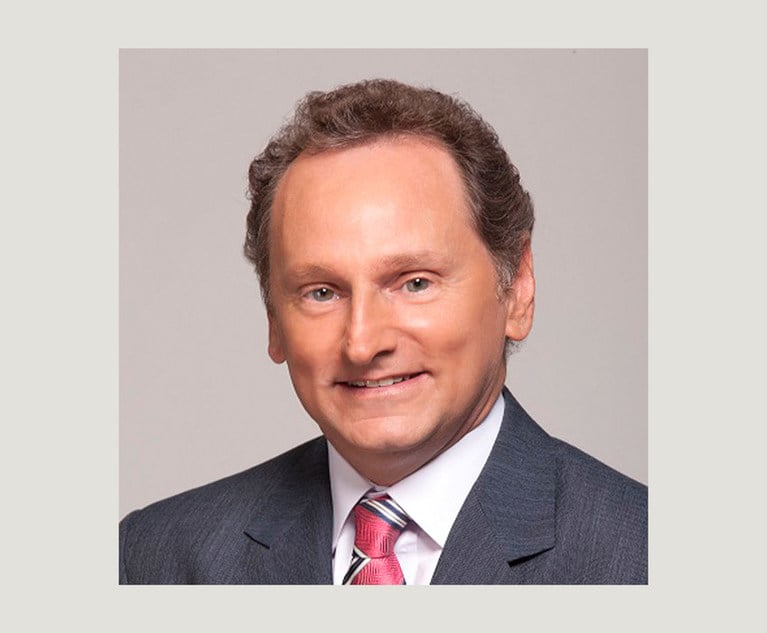Women Soccer Players' Suit Certification May Impact General Counsel Dealing With Pay Equity Issues
A federal court in Los Angeles on Friday certified the women's class action lawsuit against the U.S. Soccer Federation over unequal pay and working conditions.
November 08, 2019 at 05:33 PM
3 minute read
 Megan Rapinoe of USA during the FIFA Women's World Cup France 2019 Final football match USA v. Netherlands on July 7, 2019, in France. Photo: Romain Biard/Shutterstock.com
Megan Rapinoe of USA during the FIFA Women's World Cup France 2019 Final football match USA v. Netherlands on July 7, 2019, in France. Photo: Romain Biard/Shutterstock.com
Star Megan Rapinoe and the world champion U.S. women's soccer team have claimed another victory. A federal court in Los Angeles on Friday certified the women's class action lawsuit against the U.S. Soccer Federation over unequal pay and working conditions.
The decision could impact general counsel whose companies are struggling with pay equity issues, as well as other sport leagues with men and women's teams.
Jeffrey Kessler, co-executive chairman of Winston & Strawn and co-chair of its sports law practice, filed the suit March 8 after mediation talks broke down. Kessler on Friday referred questions to Molly Levinson, the spokeswoman for the women soccer players.
Levinson said in an emailed statement, "This is a historic step forward in the struggle to achieve equal pay. We are so pleased that the court has recognized USSF's ongoing discrimination against women players—rejecting USSF's tired arguments that women must work twice as hard and accept lesser working conditions to get paid the same as men."
She called on soccer league president Carlos Cordeiro to end "the unlawful discrimination against women now."
Federation officials could not immediately be reached for comment, but have indicated in the past they would be open to returning to talks.
Lydia Wahlke, chief legal officer for the U.S. Soccer Federation, has previously told Corporate Counsel she could not discuss the issues during pending litigation.
The 28 named plaintiffs in the lawsuit include the women's World Cup most valuable player, Rapinoe, along with Alex Morgan, Carli Lloyd and Becky Sauerbrunn. All four were named class representatives. The court also appointed Winston & Strawn as class counsel.
U.S. District Judge R. Gary Klausner of the Central District of California wrote in the ruling the U.S. Soccer Federation's argument defending the current pay scale could lead to an "absurd result." Klausner said under the current scheme a woman could be paid half as much as a man, but could reach an equal pay level by working twice as many hours.
He ordered the parties to meet and submit final class notices to the court within 14 days.
The suit could impact other women's soccer teams around the world who also have begun demanding more equality. During this year's World Cup competition, several teams urged FIFA, the world's largest sports league, to ensure that women receive pay and working conditions equal to the men's teams. FIFA has taken steps but so far has not agreed to full equity.
This content has been archived. It is available through our partners, LexisNexis® and Bloomberg Law.
To view this content, please continue to their sites.
Not a Lexis Subscriber?
Subscribe Now
Not a Bloomberg Law Subscriber?
Subscribe Now
NOT FOR REPRINT
© 2025 ALM Global, LLC, All Rights Reserved. Request academic re-use from www.copyright.com. All other uses, submit a request to [email protected]. For more information visit Asset & Logo Licensing.
You Might Like
View All
MLB's Texas Rangers Search for a New GC and a Broadcasting Deal

Sonos' Legal Chief Sees Pay More Than Quadruple Amid Executive Upheaval
3 minute read
SEC Puts Beat Down on Ex-Wrestling CEO Vince McMahon for Not Reporting Settlements
3 minute readTrending Stories
Who Got The Work
J. Brugh Lower of Gibbons has entered an appearance for industrial equipment supplier Devco Corporation in a pending trademark infringement lawsuit. The suit, accusing the defendant of selling knock-off Graco products, was filed Dec. 18 in New Jersey District Court by Rivkin Radler on behalf of Graco Inc. and Graco Minnesota. The case, assigned to U.S. District Judge Zahid N. Quraishi, is 3:24-cv-11294, Graco Inc. et al v. Devco Corporation.
Who Got The Work
Rebecca Maller-Stein and Kent A. Yalowitz of Arnold & Porter Kaye Scholer have entered their appearances for Hanaco Venture Capital and its executives, Lior Prosor and David Frankel, in a pending securities lawsuit. The action, filed on Dec. 24 in New York Southern District Court by Zell, Aron & Co. on behalf of Goldeneye Advisors, accuses the defendants of negligently and fraudulently managing the plaintiff's $1 million investment. The case, assigned to U.S. District Judge Vernon S. Broderick, is 1:24-cv-09918, Goldeneye Advisors, LLC v. Hanaco Venture Capital, Ltd. et al.
Who Got The Work
Attorneys from A&O Shearman has stepped in as defense counsel for Toronto-Dominion Bank and other defendants in a pending securities class action. The suit, filed Dec. 11 in New York Southern District Court by Bleichmar Fonti & Auld, accuses the defendants of concealing the bank's 'pervasive' deficiencies in regards to its compliance with the Bank Secrecy Act and the quality of its anti-money laundering controls. The case, assigned to U.S. District Judge Arun Subramanian, is 1:24-cv-09445, Gonzalez v. The Toronto-Dominion Bank et al.
Who Got The Work
Crown Castle International, a Pennsylvania company providing shared communications infrastructure, has turned to Luke D. Wolf of Gordon Rees Scully Mansukhani to fend off a pending breach-of-contract lawsuit. The court action, filed Nov. 25 in Michigan Eastern District Court by Hooper Hathaway PC on behalf of The Town Residences LLC, accuses Crown Castle of failing to transfer approximately $30,000 in utility payments from T-Mobile in breach of a roof-top lease and assignment agreement. The case, assigned to U.S. District Judge Susan K. Declercq, is 2:24-cv-13131, The Town Residences LLC v. T-Mobile US, Inc. et al.
Who Got The Work
Wilfred P. Coronato and Daniel M. Schwartz of McCarter & English have stepped in as defense counsel to Electrolux Home Products Inc. in a pending product liability lawsuit. The court action, filed Nov. 26 in New York Eastern District Court by Poulos Lopiccolo PC and Nagel Rice LLP on behalf of David Stern, alleges that the defendant's refrigerators’ drawers and shelving repeatedly break and fall apart within months after purchase. The case, assigned to U.S. District Judge Joan M. Azrack, is 2:24-cv-08204, Stern v. Electrolux Home Products, Inc.
Featured Firms
Law Offices of Gary Martin Hays & Associates, P.C.
(470) 294-1674
Law Offices of Mark E. Salomone
(857) 444-6468
Smith & Hassler
(713) 739-1250







